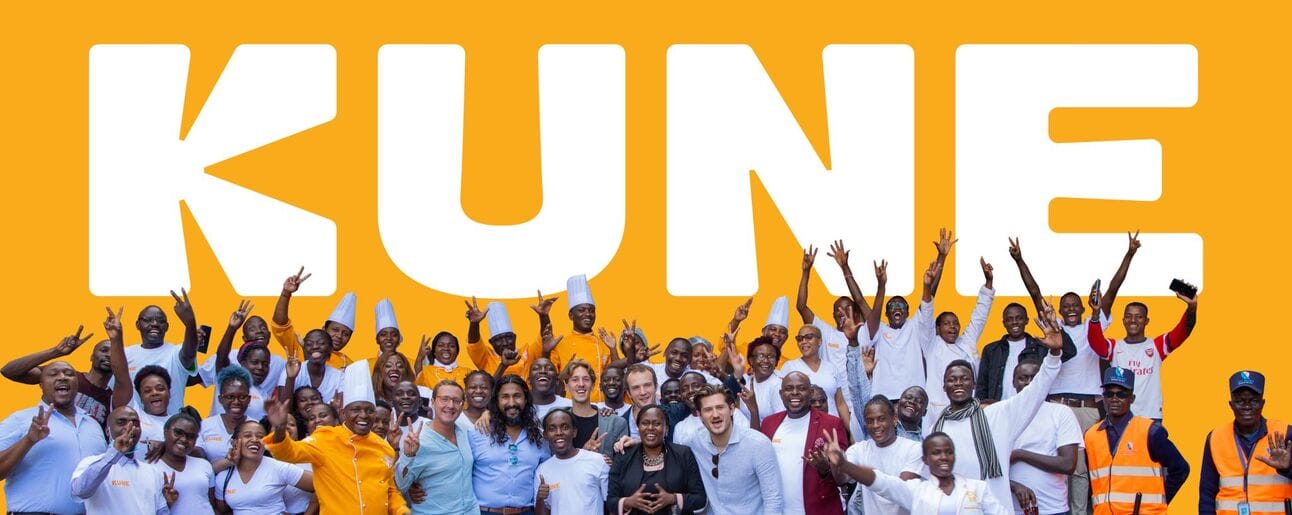- Africa's Next Big Startup
- Posts
- Crash & Learn: Insights from Startup Setbacks
Crash & Learn: Insights from Startup Setbacks
The Stories Behind Africa’s Boldest Startup Lessons

KUNE
Kune’s Big Bet: How a Meal-Delivery Dream Fizzled in 18 Months
Crash & Learn — Issue #1
Hello Everyone,
In this debut issue, we dissect Kune, the Kenyan food-tech startup that promised "affordable, fresh meals for all"—but crashed before it could scale. Was it bad timing, bad math, or bad luck? Let’s unpack what happened and what African founders can learn.
Startup Snapshot
Founded: 2020 | Closed: 2022 (18 months)
HQ: Nairobi, Kenya (high operating costs in cities hurt margins)
Sector: Food Delivery (B2C)
Funding: $1M+ (backed by local angels and VC)
Peak Team: 50+ (rapid hiring pre-revenue)
Claim to Fame: "Meals under $3"—went viral for affordability.
The Rise & Fall
In late 2020, an ambitious food startup launched in Nairobi with a big promise: to make affordable, chef-prepared meals easily accessible through a vertically integrated food delivery model. The company handled production, logistics, and customer delivery in-house, positioning itself as a hybrid of restaurant quality and cloud kitchen efficiency.
Early media attention, a $1M pre-seed round, and a sleek brand identity propelled it into the spotlight. By March 2022, it was delivering 600 meals daily at a 48% gross margin, with a $650K annual revenue run-rate. Over 55,000 meals were sold, 6,000+ customers were acquired, and 100 corporations were served.
But that momentum came at a cost.
Despite a growing customer base and an upcoming $3.5M seed round, the company couldn’t raise more funds, and margins were crushed by rising food prices and economic pressure. Operations shut down 18 months after launch.
1️⃣ The Big Bet
Problem: Office workers and students in Nairobi struggled to find cheap, healthy meals without long queues.
Unfair Advantage: Kune’s founder, Robin Reecht, was a French ex-food industry exec with a bold vision: industrialize meal prep to cut costs.
Belief: "If we cook in bulk and deliver fast, we’ll beat local kiosks and restaurants on price."
2️⃣ Early Wins & Hype
✅ 10,000+ meals sold in first 3 months.
✅ Media darling: Featured in TechCrunch, Disrupt Africa.
🚩 But… Growth relied on heavy discounts (real unit economics were shaky).
3️⃣ The Turning Point
Cracks: Customers loved the price—but not the same 5 meals every week. Churn spiked.
Ignored Warnings: Delivery delays and inconsistent quality ("Sometimes the food was cold").
Cash Burn: High fuel costs + thin margins = $0.50 profit per meal.
4️⃣ The Crash
Final Trigger: Failed to raise Series A (investors wanted denser demand).
Leadership Reaction: Pivoted to corporate catering—too late. Shut down in mid-2022.
Why Kune Failed: Top 3 Mistakes
1️⃣ Mistake #1: Scaled kitchens before locking retention (Customers got bored).
2️⃣ Mistake #2: Underestimated last-mile costs (Nairobi traffic killed margins).
3️⃣ Mistake #3: Raised too little too early ($1M couldn’t cover trial-and-error).
Lessons for African Founders
✅ Lesson #1: "Don’t compete on price alone—build a habit." (Kune should’ve rotated menus weekly to keep interest.)
✅ Lesson #2: "When logistics eat profits, go hyperlocal first." (Test in one suburb before citywide.)
✅ Lesson #3: "Raise for 18+ months of runway—or don’t raise at all."
The Aftermath
Founder: Robin returned to France; the team scattered to other startups.
Legacy: Proved demand for cheap meals—but no one’s cracked it profitably yet.
Founder’s Reflection: "We needed 2x more capital or 2x slower growth."

Cousera Plus
Affiliates Corner
Inspired Leadership by Case Western Reserve University
In this specialization, you will learn how to overcome the ravages of chronic stress and renew your body and mind by building better relationships and positive approaches to leadership. You will learn the power of asking questions to become a more inclusive and self-confident leader and how to effectively coach others toward sustained, desired change, learning, or increased motivation in life and work.
The Discipline of Leadership by The University of Notre Dame
Because it is likely you either want to improve your leader effectiveness or you may want to increase the number of leadership opportunities you have, this course will focus on outlining the factors that predict leader emergence (whether someone will emerge as a leader) and leader effectiveness.
Leadership in Action and Planning by Johns Hopkins University
The course "Leadership in Action and Planning" provides practical skills and strategies for advancing your leadership capabilities in organizational settings. Focusing on strategic planning, change leadership, and coalition building, you'll gain the tools necessary to drive success and growth within any organization. Through real-world scenarios, you will learn how to develop comprehensive strategic plans, lead organizational change effectively, and create powerful alliances to enhance influence and collaboration.
Want to be featured as an affiliate partner in our next issue?
Reply to this email, and let’s connect!
Reader Q&A
"Have you struggled with unit economics in food/logistics? Reply with your story—we might feature it!"
Call to Action
🔗 Nominate a startup for our next post-mortem.
🔗 Share this with a founder battling high CAC or churn.
🔗 Reply: Which lesson hit home?
Final Word
Kune’s story isn’t about failure—it’s about what Africa’s next food-tech star can learn. The problem is real. The solution? Still up for grabs.